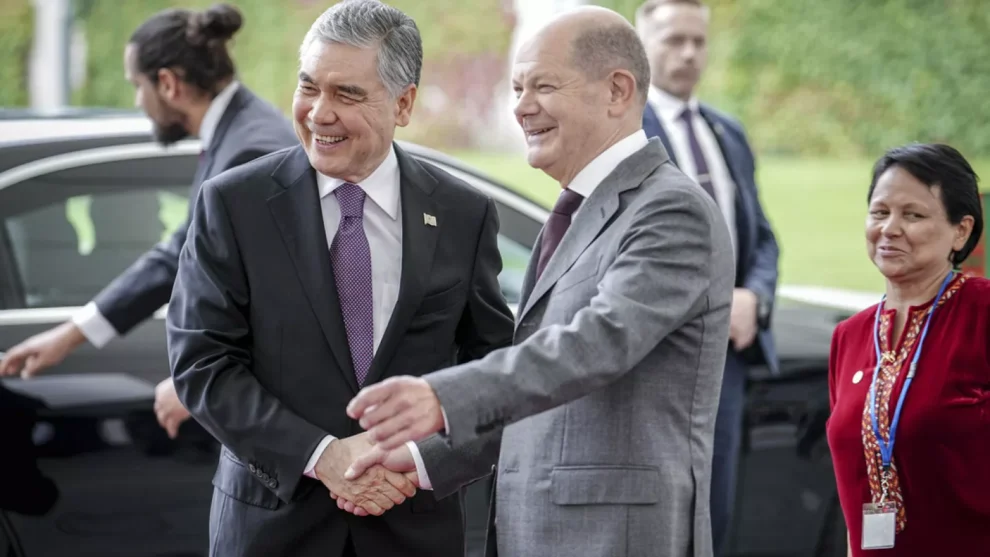Chancellor Olaf Scholz hosted leaders from Kazakhstan, Kyrgyzstan, Tajikistan, Turkmenistan and Uzbekistan to discuss strengthening regional and economic cooperation.
Germany’s Chancellor Olaf Scholz welcomed leaders from the five Central Asian states for their first-ever summit on Friday, as EU member states seek to win geopolitical allies in the region.
In Berlin, leaders from Kazakhstan, Kyrgyzstan, Tajikistan, Turkmenistan and Uzbekistan discussed strengthening regional and economic cooperation – and the development of the so-called ‘Middle Corridor’ route, connecting the region with Europe.
“The leaders confirmed their interest in developing the Middle Corridor and attracting financing for infrastructure projects under the Global Gateway initiative,” the leaders announced in a joint declaration.
Chairwoman of the Committee on Eastern European Economic Relations Catharina Claas-Mühlhäuser called the meeting “historic”, as she proposed five priorities for intensifying cooperation: Energy, raw materials, agriculture, transportation and vocational training.
In a joint statement, all parties stressed the importance of respecting the global sanctions regime against Russia.
Central Asian states have often been accused of providing Moscow with supplies it can’t obtain due to punitive measures it’s facing over the Ukraine war.
President of Kazakhstan Kassym-Jomart Tokayev said on Thursday that Kazakhstan won’t help Russia to circumvent Western sanctions.
“As for the possible circumvention of sanctions, Kazakhstan has unequivocally stated that it will follow the sanctions regime […] it seems to me that there should be no fears on the German side of possible actions aimed at circumventing the sanctions regime,” Tokayev stated.
Tokayev also vowed to increase future oil deliveries to Germany, as Berlin seeks alternatives to Russian imports.
“At our German friends’ request, I have confirmed our country’s readiness to increase oil supplies and make them long-term,” he added.
Source: Euronews















